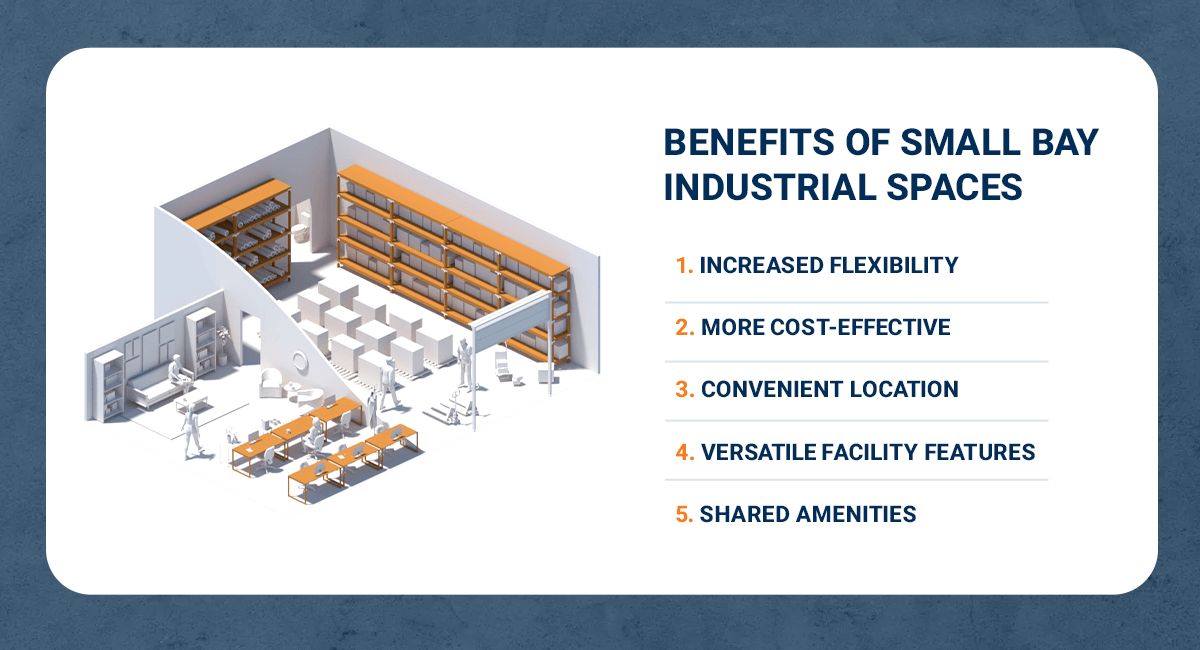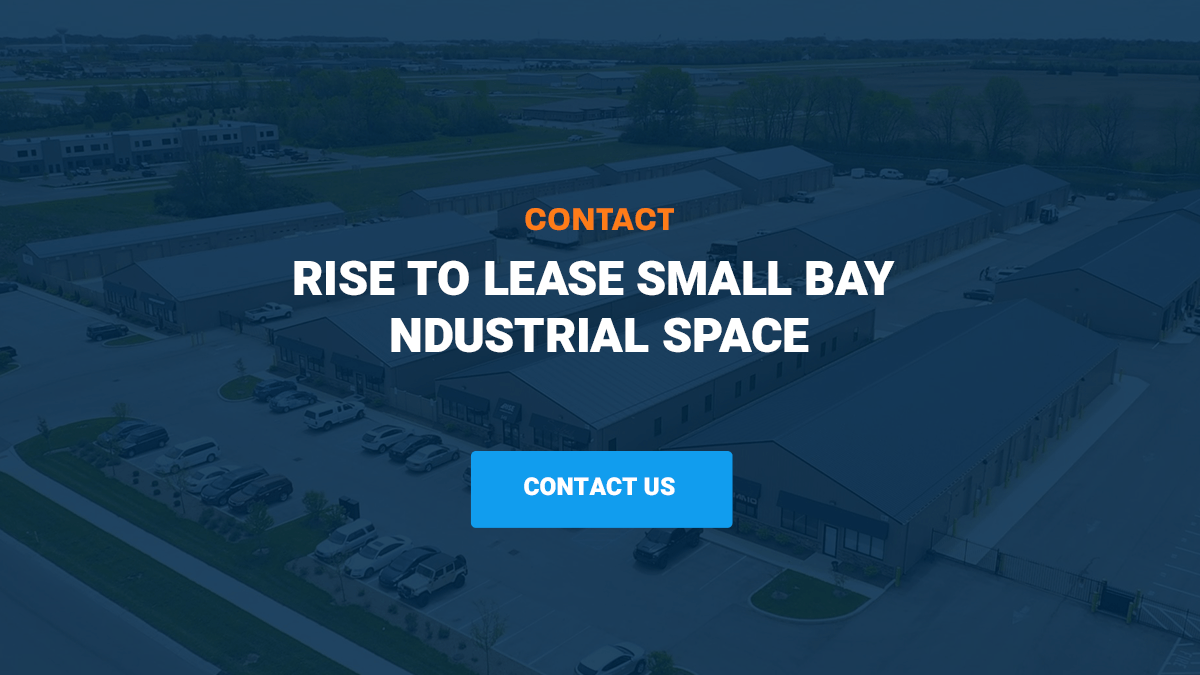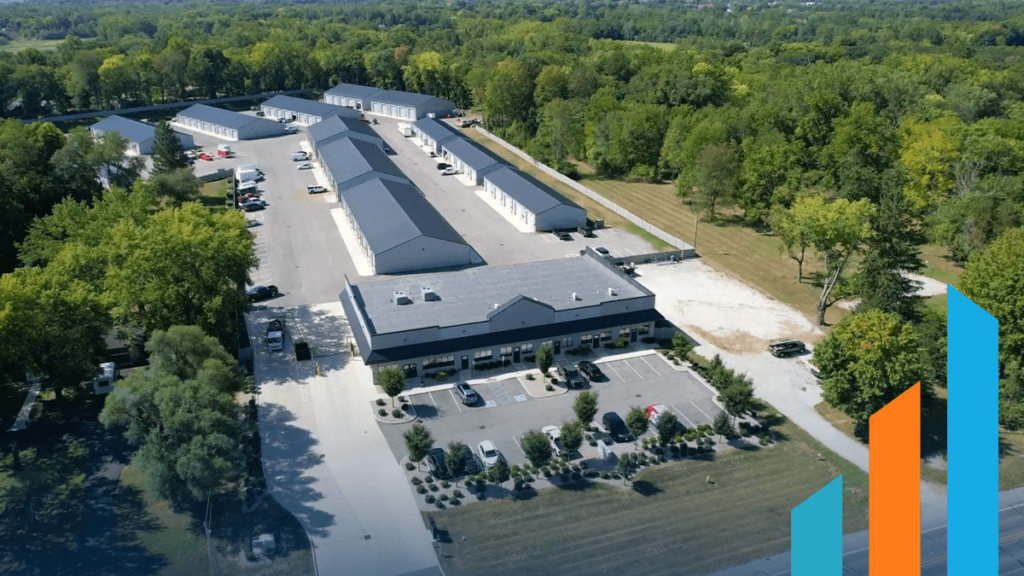- Flexibility
- Cost-Effective
- Location
- Versatility
- Amenities
- Types of Businesses
- Frequently Asked Questions
As an entrepreneur or small business owner, you may need storage and office space for your company. In this instance, a small bay industrial space might be your ideal option. While traditional warehouses are usually open spaces meant for storage, small bay units combine industrial and office space. Sometimes called office warehouses or flex space, these properties typically offer compact, highly adaptable units for small to medium-sized businesses (SMBs).
Learn more about the advantages of small bay industrial spaces for your operations.

Benefits of Small Bay Industrial Spaces
Here are five significant ways small bay industrial spaces can benefit businesses:
1. Increased Flexibility
The flexibility of a small bay industrial unit is one of the biggest advantages. These spaces have a more traditionally professional area up front so businesses can meet with clients, customers or vendors in an office or conference room rather than in an open warehouse. The warehouse portion can also meet various needs, such as being used as a workshop, production area, shop space or storage.
The right facility will have several options so businesses can find the best fit for their short- and long-term needs and allow them to scale up or down quickly. Companies don’t need to find another location when they can expand where they are.
2. More Cost-Effective
Of course, leasing a smaller unit means paying less in rent and utilities, and leasing flex space means only paying for one location instead of separate office and warehouse sites. A small bay industrial space can give you more predictable monthly expenses, especially if utilities and maintenance fees are included in your base rent.
A small bay industrial space is ideal for startups since the smaller unit allows new businesses to focus their capital on equipment and operations instead of real estate. Leasing flex space also reduces risk since there’s no long-term property ownership commitment and decreased exposure to market fluctuations for the duration of the lease.
3. Convenient Location
Small bay industrial buildings are typically in industrial or business parks for easy access to shipping and receiving infrastructure such as highways and airports. Their office portion also means they’re rarely too far from where people live and do business, with close proximity to urban areas and transportation hubs.
Sharing flex space with other businesses can also offer a sense of community and networking opportunities. Since these properties have multiple tenants and common areas, tenants are more likely to interact with other companies and may be able to support or cross-promote each other.
4. Versatile Facility Features
These spaces generally have better industrial features than offices and more professional office spaces than heavily industrial properties. The warehouse portion usually has higher ceilings for more efficient vertical storage, reinforced floors to support heavy equipment and wide loading doors for freight access.
They also tend to have climate control for a more comfortable administrative area and modern security systems to keep staff, visitors and inventory safe. Especially for e-commerce companies, a flex space is more likely to have or be able to support all the necessary tech than a traditional warehouse.
5. Shared Amenities
Because small bay industrial buildings typically have many tenants, they often have several shared amenities for all tenants, such as larger common areas, conference rooms, break rooms and kitchens. Some even offer shared loading equipment, further reducing individual business expenses, and free parking for workers and guests.
The shared space reduces maintenance responsibilities for each tenant and means professional, outsourced management provided by the landlord.
Types of Businesses That Benefit From Small Bay Industrial Space
While many companies can benefit from leasing small bay industrial space, it’s particularly advantageous for the following types of organizations:
- Startups and tech companies: These businesses benefit from lower initial costs compared to traditional office space, as well as the flexible configuration options for rapid prototyping and scaling.
- Local service-based businesses: For local services such as landscapers, HVAC repair companies and car wrappers, small bay units offer customer reception and meeting areas, storage space for equipment and supplies, workshop space for in-house repairs, and easy highway access for service calls, all in one convenient location.
- Light manufacturing: Businesses such as custom cabinet makers and reupholsterers appreciate the reinforced floors and higher ceilings for production and professional office and showroom spaces for meeting clients and completing administrative work.
- E-commerce businesses and distributors: For these businesses, small bay industrial spaces offer strategic locations near urban centers with easy access to shipping routes for last-mile delivery or broader logistics needs.
- Seasonal businesses: Companies with seasonal fluctuations benefit from flexible lease terms and short-term expansion options typically available at small bay industrial properties.
- Research and development: Small bay units are ideal for prototyping, offering production, storage, lab and office configurations in spaces with climate control and modern security features.

Contact RISE to Lease Small Bay Industrial Space
While warehouses may have once been an afterthought, small bay industrial properties have turned them into essential real estate by combining office, storage and logistics capabilities. No matter your industry, if your business is looking for flex space that offers more than square footage in an empty warehouse, RISE Commercial District has your solution.
Our modern flex properties offer warehouse space with offices, conference rooms, high-speed Wi-Fi and video surveillance for one transparent price. To get started, schedule a tour of our high-end facilities in Indiana, Minnesota, Ohio or Wisconsin, or contact us online for more information about our industrial lease options.
Frequently Asked Questions
What’s the Difference Between Small and Mid-Bay Industrial?
Mid-bay industrial spaces are larger and have less office space than small bay units. Tenants in small bay spaces tend to be local businesses with one- to three-year leases and more involved management. In contrast, mid-bay spaces generally lease to larger regional companies for three to five years with less hands-on management.
What’s the Difference Between Small Bay and Shallow Bay Industrial?
Shallow bay buildings are light industrial with a shallow depth to prioritize product movement over storage. They are often but not always small bay units and are ideal for last-mile delivery.
What’s the Difference Between Small Bay and Single Bay Industrial?
A single bay industrial unit only has one bay, which is the loading area for freight. Small bay units may have one or more bays.
Why Lease Small Bay Industrial Space?
Leasing flex space provides companies with a more cost-effective option than owning property or leasing multiple locations for distinct uses. When businesses lease small bay industrial space, they enjoy turnkey properties, flexible configuration possibilities and more freedom to scale their space as needed.
What Is the Most Common Lease Used by Industrial Tenants?
Industrial landlords often use a triple net lease, which means the tenant is directly responsible for paying for property taxes, insurance and maintenance in addition to rent and utilities. RISE Commercial District offers full-service, gross leases that include Wi-Fi, utilities, trash, management fees, forklifts and delivery receiving services.



